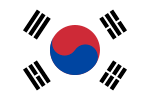
Education in South Korea is provided by both public schools and private schools. Both types of schools receive funding from the government, although the amount that the private schools receive is less than the amount of the state schools.
South Korea is one of the top-performing OECD countries in reading literacy, mathematics and sciences with the average student scoring about 519, compared with the OECD average of 493, placing it ninth in the world.[ The country has one of the world's highest-educated labour forces among OECD countries.The country is well known for its obsession with education, which has come to be called "education fever".The resource-poor nation is consistently ranked amongst the top for global education.
Higher education is an overwhelmingly serious issue in South Korean society, where it is viewed as one of the fundamental cornerstones of South Korean life. Education is regarded as a high priority for South Korean families, as success in education is necessary for improving one's socioeconomic position in South Korean society. Academic success is often a source of pride for families and within South Korean society at large. South Koreans view education as the main propeller of social mobility for themselves and their family as a gateway to the South Korean middle class. Graduating from a top university is the ultimate marker of prestige, high socioeconomic status, promising marriage prospects, and a prestigious and respectable white collar career path. An average South Korean child's life revolves around education as pressure to succeed academically is deeply ingrained in South Korean children from an early age. South Korean students are faced with immense pressure to succeed academically from their parents, teachers, peers and society. This is largely a result of a society that has long placed a great amount of importance on higher education as those who lack formal university education often face social prejudice as well as face significant life-long consequences such as a stagnant and lower socioeconomic status, diminishing marriage prospects, as well as possibilities of securing a respectable white collar and professional career path.
In 2016, the country spent 5.4% of its GDP on all levels of education – roughly 0.4 percentage points above the OECD average.[4] A strong investment in education, a militant drive for success, as well as the passion for excellence has helped the resource poor country rapidly grow its economy over the past 60 years from the effects of the Korean War.[21] South Korea's zeal for education and its students' desires to get into a prestigious university is one of the highest in the world, as the entrance into a top tier higher educational institution leads to a prestigious, secure and well-paid professional white collar job with the government, banks, or a major South Korean conglomerate such as Samsung, Hyundai and LG Electronics.[22] With incredible pressure on high school students to secure places at the nation's best universities, its institutional reputation, campus facilities and equipment, endowment, faculty, and alumni networks are strong predictors of future career prospects. The top three universities in South Korea, often referred to as "SKY", are Seoul National University, Korea University and Yonsei University.[2][23][24] Intense competition and pressure to earn the highest grades is deeply ingrained in the psyche of South Korean students at a young age.[24] Yet with only so many places at universities and even fewer places at top-tier companies, many young people remain disappointed and are often unwilling to lower their sights with the result of many feeling as underachievers. There is a major cultural taboo in South Korean society attached to those who have not achieved formal university education, where those who don't hold university degrees face social prejudice and are often looked down by others as second-class citizens, resulting fewer opportunities for employment, improvement of one's socioeconomic position and prospects for marriage.[25]